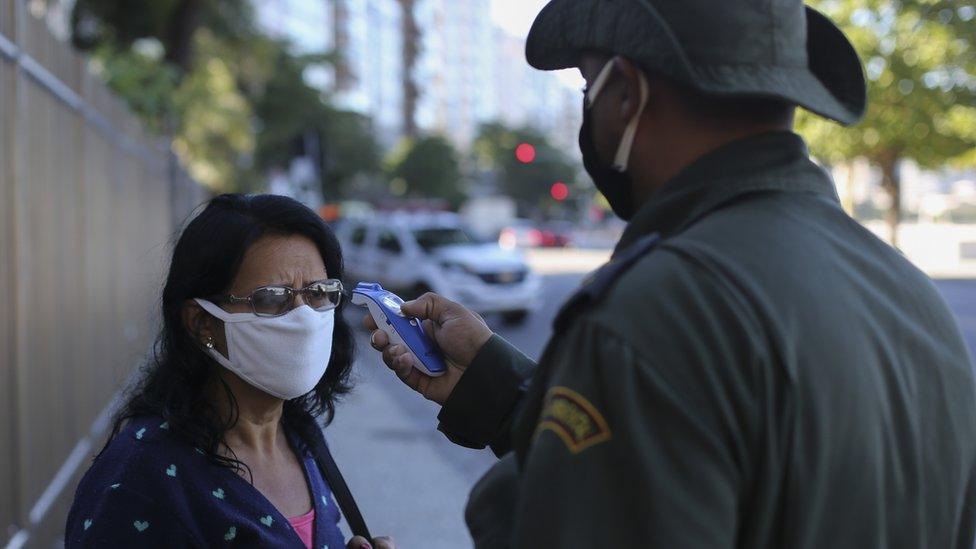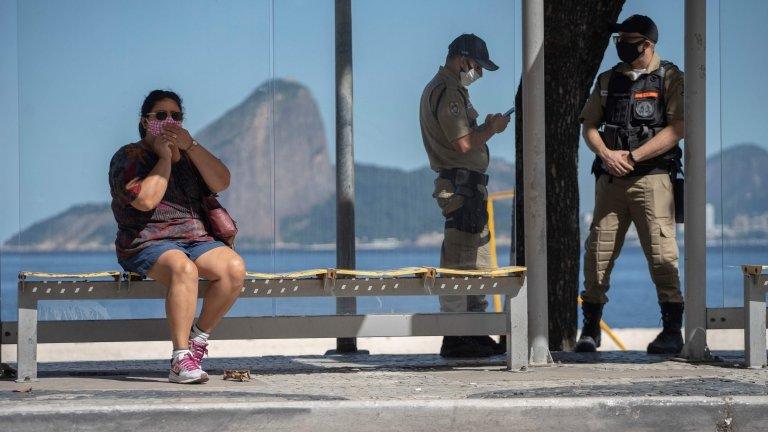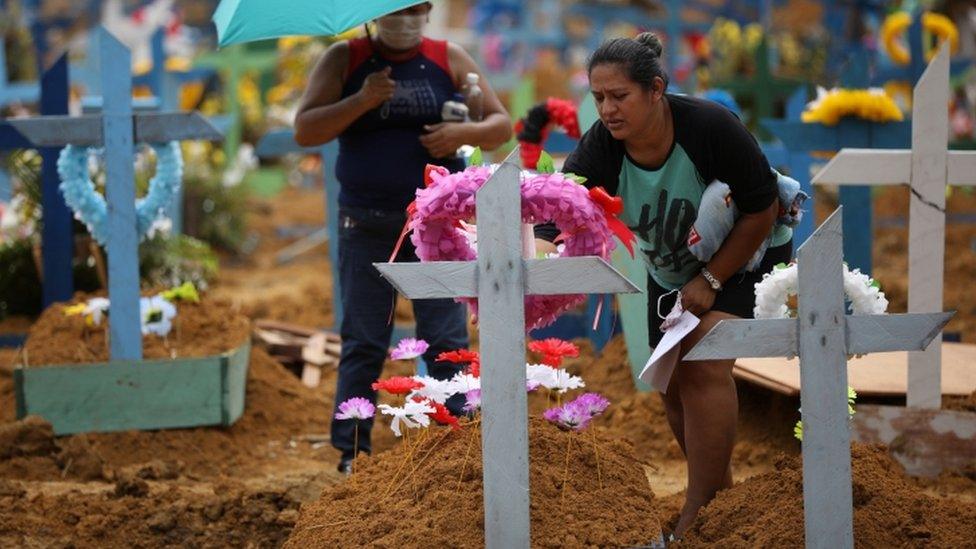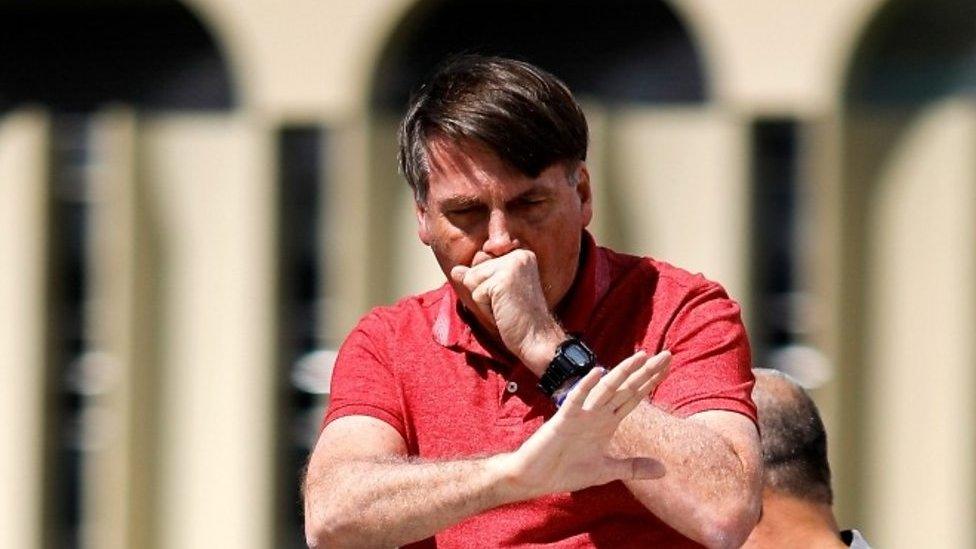Coronavirus: Brazil records highest daily rise in deaths
- Published

A member of the Municipal Civil Guard checks the temperature of a pedestrian in the city of Niterói
Brazil has recorded its highest daily rise in the number of deaths from the coronavirus, health officials say.
It registered 881 new deaths on Tuesday, the health ministry said. The total death toll now stands at 12,400.
It means Brazil, which is at the centre of the Latin American outbreak, is now the sixth worst affected country in terms of recorded deaths.
And experts say the real figure may be far higher due to a lack of testing in the country.
"Brazil is only testing people who end up in the hospital," Domingo Alves from the University of Säo Paulo Medical School told AFP news agency.
"It's hard to know what's really happening based on the available data," he said. "We don't have a real policy to manage the outbreak."
Mr Alves is one of the authors of a study that estimated the real number of infections was 15 times higher than the official figure.
The number of confirmed cases in the country currently stands at 177,589, officials say. It rose by more than 9,000 on Tuesday and overtook Germany's tally of 170,000.

THE R NUMBER: What it means and why it matters
GLOBAL SPREAD: Tracking the pandemic
RECOVERY: How long does it take to get better?
A SIMPLE GUIDE: What are the symptoms?

Brazil's total is second only to the US in the Western Hemisphere. The World Health Organization (WHO) says the Americas are currently at the centre of the pandemic.
The outbreak is expected to accelerate over the coming weeks, experts say, and there are fears the pandemic could overwhelm Brazil's health system.
But far-right President Jair Bolsonaro has repeatedly downplayed the threat of the coronavirus and criticised governors and mayors for adopting strict restrictions to curb its spread.
Doria: "It’s amazing when you have two viruses to combat: the coronavirus and the Bolsonaro virus"
Earlier this week, he issued a decree that classified businesses such as gyms and hairdressers as "essential" services that were exempt from lockdowns. But at least 10 governors said they would not comply with the order.
"Governors who do not agree with the decree can file lawsuits in court," Mr Bolsonaro wrote on social media.
It comes after researchers said the first recorded coronavirus-related death in Brazil happened almost two months earlier than previously thought.
Scientists at the Oswaldo Cruz Foundation said molecular tests suggested a patient who had died in Rio de Janeiro between 19 and 25 January had had Covid-19.

Brazil's coronavirus figures are issued at the end of each day - and every evening people are hoping for the best but expecting the worst.
Brazil doesn't have a lot going for it at the moment, when it comes to flattening the curve… a president who sows confusion by flouting global health guidelines (at the weekend he jumped on a jetski, mask-free, and attended a floating BBQ, for example) and government statistics that reveal residents in the worst-hit city Sao Paulo are increasingly failing to isolate.
Just 48% of people in Sao Paulo are staying at home nowadays, despite a state-wide quarantine. Traffic jams have returned and local authorities are trying to counter that by introducing tougher measures. Sao Paulo city has banned cars from circulating on particular days and tried to block roads to dissuade people from commuting. Some badly affected states in the north east have introduced much tougher lockdown measures.
But they all feel like desperate attempts to reverse an inevitable course of spiralling deaths. With no federal leadership for people to look to, Brazil has resorted to a fragmented approach to an ever more worrying crisis.

The scientists also said their research suggested the virus was being spread from person to person in Brazil in early February - weeks before the country's popular carnival street parties kicked off.
Health Minister Nelson Teich said he needed more information before he could comment on the research carried out by the Oswaldo Cruz Foundation, which has been published online but not yet been peer-reviewed.
If confirmed, the cases would considerably change the timeline of how the virus spread in Brazil.
- Published12 May 2020

- Published4 May 2020

- Published21 April 2020
